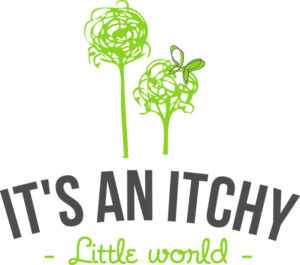The Ultimate Winter Eczema Care Guide

By Laura Dolgy (bio below)
Ah, yes the most anticipated season of the year has begun – winter (said no one with dry skin ever). Unfortunately for many eczema sufferers, this is the time for severely cracked, itchy and of course – dry skin. But don’t fear! Winter eczema can actually be quite easy to control, as long as you are taking proper care of both your skin and your body.
Please keep in mind that although these recommendations can relieve eczema, we are in no way medical professionals. If you’re experiencing severe eczema symptoms like fever or an infection, it is best to seek medical advice immediately.
Moisturize
It shouldn’t be a surprise that moisturizing during the winter months is extremely important. Moisturizing properly will keep skin protected from the ongoing harsh weather and will even keep itching to a minimum.
Not sure what treatment to use to properly moisturize this season and reduce winter eczema? Check out our recommendations below based on different skin types!
Itchy/Dry Eczema
This is probably the most common type of eczema found both during and outside of the winter months. If you’re experiencing itchy, dry eczema, then the best solution is to use a natural product that can actually permeate the skin and offer relief.
The Organic Manuka Skin Soothing Cream offers a perfect combination of both nourishing Manuka honey, as well as Manuka oil to soothe and calm irritated, dry and itchy skin. Another favorite is the Emily Skin Soothers for Itchy Eczema, which is filled with a selection of Chinese herbs and beeswax that soothes ALL dry skin conditions and really helps with itchy eczema.
Thick/Scaly Eczema
Got itchy and scaly eczema? Try this Grass Fed Tallow Balm that will immediately soothe dry skin and provide natural relief for your itchy skin. Not only is this balm extremely nourishing and thick, but it comes in three variations: unscented, with lavender and with lavender and tea tree. So you can choose how much herbal power you’d like. For the most sensitive of skin, the unscented would be best. And for full antibacterial and antiseptic properties, go for the lavender and tea tree variation.
Red/Weeping Eczema
If your weeping eczema only gets worse in the winter then this Emily Skin Soothers for Red Eczema Rashes is a great option. It was created by an acupuncturist as a natural alternative for healing weeping and crusty eczema. Not only does it calm the red, but it will help treat topical bacteria, yeast and fungus.
Wet/Dry Wrapping
Because skin is highly sensitive in the winter months and has the tendency to become dry, itchy and scaly, we definitely recommend wet and dry wrapping. This process only requires a bath, moisturizer and a layer of clothing to seal in moisture. We guarantee that dry, winter eczema will feel much better after trying this! Read more about wet wrap therapy here.
Vitamin D
With winter months comes less sunshine and that means less Vitamin D. As discussed in our blog post The Truth about Vitamin D and Eczema, studies have shown that the consumption of vitamin D has been effective in treating and healing eczema. In fact, without enough vitamin D, your immune system can weaken which can cause the skin barrier to break down and the chances for skin infection to increase.
By supplementing with tablets such as these Viva Naturals High Potency Vitamin D3 or by increasing your intake of fatty fish and fish oils, you can decrease your chance of skin infection and even provide some much needed relief to your dry skin.
Eat Properly
Aside from keeping skin moisturized all season long, it’s very important to also heal yourself from within. As we have mentioned in many other posts, carrying out an elimination diet can help you discover what is triggering your dry, itchy eczema. Yes, winter is making your eczema worse, but your body is likely already inflamed, so reducing inflammation by way of diet can really help your skin! To learn more about elimination diets and if they work, make sure to check out: Our Eczema Elimination Diet Success (How You Can Do It Too!).
You can also heal eczema by focusing on certain foods during the winter months like root vegetables and warming, nourishing foods like bone broth that can help keep your gut balanced. To get a better idea of what foods are beneficial for winter eczema, take a look at our blog post: How to Eat Well For Winter Eczema Relief that is packed with suggestions and recommendations from Naturopath Dr. Amy Duong.
Although the winter months might be the harshest time for eczema, there are many treatments and practices one can adopt to keep their skin safe. The above tips might help keep your eczema hydrated at the surface, but eating healthy and knowing which allergens to stay away from will also help wonders.
How do you deal with winter eczema? Let us know in the comments below!
Bio: Laura is a contributor and content developer for It’s An Itchy Little World. She is in no way a medical professional. Her comments, suggestions, and reflections are not intended to replace any medical advice. Always seek the help of a medical professional before undertaking any diet or lifestyle changes. Please see It’s An Itchy Little World’s disclaimer for information about affiliate links and more.
FROM: Eczema

The cold has a dramatic effect on my eczema. Plus I work in a cold refrigerator room so that doesn’t help either.
Oh no! You can’t escape the cold at all. Be good to your skin.
I agree with our point moisturizing your body keep your skin protected from winter weather and it also reduces the itchiness.
I have a very oily skin but still i always prefer to moisturize my skin with gel based moisturizer on winters. This is the best way to avoid winter eczema 🙂